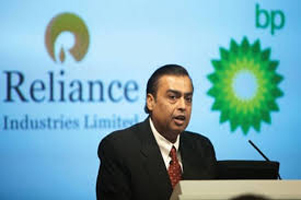MUMBAI, JULY 9
Global energy supermajor BP plc and Reliance Industries Ltd on Thursday announced the start of their fuel retailing joint venture under the brand ”Jio-bp”.

BP had last year bought 49 percent stake in the 1,400-odd petrol pumps and 31 aviation turbine fuel (ATF) stations owned by Reliance Industries Ltd (RIL) for US $1 billion.
The joint venture, where RIL holds the remaining 51 percent, has now commenced operations.
“Following initial agreements in 2019, bp and RIL teams have worked closely over the past few months in a challenging environment to complete the transaction as planned,” the companies said in a joint statement, adding the new fuels and mobility joint venture, Reliance BP Mobility Ltd (RBML), has started operations.
Operating under the ”Jio-bp” brand, the joint venture aims to become a leading player in India’s fuels and mobility markets.
RBML has received the marketing authorisation for transportation fuels, amongst other necessary regulatory and statutory approvals.
The joint venture will begin selling fuels and Castrol lubricants with immediate effect from its existing retail outlets, which will be rebranded to ”Jio-bp” in due course.
“It will leverage Reliance’s presence across 21 states and its millions of consumers through the Jio digital platform. bp will bring its extensive global experience in high-quality differentiated fuels, lubricants, retail, and advanced low carbon mobility solutions,” the statement said.
India’s auto fuel retailing is dominated by public sector oil companies that own the majority of 69,392 petrol pumps in the country. State-owned IOC, BPCL, and HPCL own 62,072 petrol pumps and 224 out of the 256 aviation fuel stations in the country.
BP and RIL said they expect the venture to grow rapidly to help meet India’s fast-growing demands for energy and mobility.
“India is expected to be the fastest-growing fuel market in the world over the next 20 years, with the number of passenger cars in the country estimated to grow almost six-fold over the period. RBML aims to expand from its current fuel retailing network of over 1,400 retail sites to up to 5,500 over the next five years,” the statement said.
This rapid growth will require a four-fold increase in staff employed in service stations – growing from 20,000 to 80,000 in this period.
The joint venture also aims to increase its presence from 30 to 45 airports in the coming years.
Commenting on this, RIL Chairman and Managing Director Mukesh Ambani said: “Reliance is expanding on its strong and valued partnership with bp, to establish a pan-Indian presence in retail and aviation fuels. RBML will aim to be a leader in mobility and low carbon solutions, bringing cleaner and affordable options for Indian consumers with digital and technology being our key enablers.”
Bernard Looney, BP chief executive officer, said India has been leading the way with innovations in digital technology, value engineering, and new energy solutions.
“It is a country that will require more energy for its economic growth and, as it prospers, its needs for mobility and convenience will accelerate. bp has a proud history in India spanning over a century. We are honoured to be a strategic partner with Reliance – India’s most valuable company – and pleased that our partnership has grown in both substance and spirit over this past decade,” he said.
The new joint venture aspires to provide Indian consumers with advanced fuels with lower emissions, electric vehicle charging, and other low carbon solutions over time.
RBML is also committed to the decarbonisation of its own operations as well as that of its wider ecosystem, the statement said.
With its many investments in India and employing around 7,500 people in the oil, gas, lubricants, and petrochemical businesses, BP is one of the largest international energy companies in India.
In addition to its gas value chain, retail, aviation fuels, and mobility alliance with RIL, BP’s activities include Castrol lubricants, oil and gas trading, clean energy projects through investment in Lightsource bp, IT back-office activities and a new global business services centre.
BP owns 33.3 percent stake in RIL-operated gas blocks in eastern offshore, including the flagging KG-D6 block.










